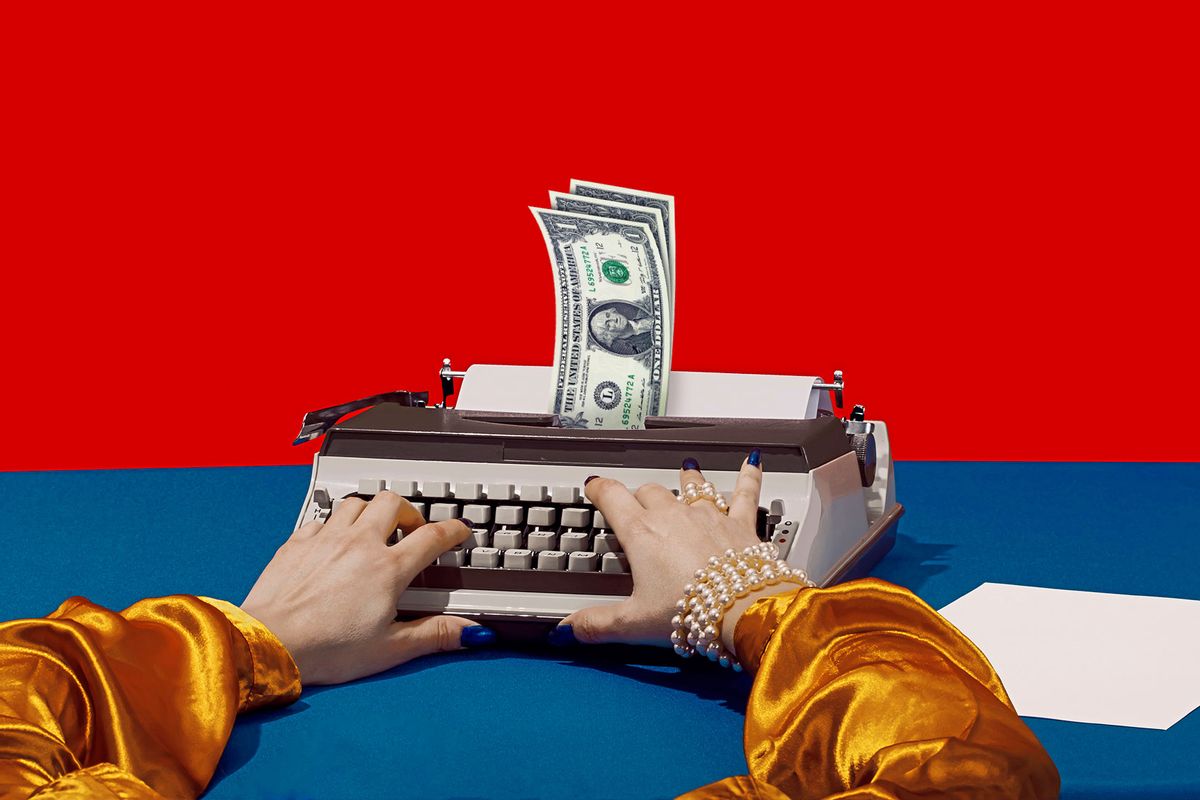Bussiness
Why artists should master the business of creativity

When my first viral piece hit, a story about what I called a “F**k Off Fund,” a friend sent me a photo with a message: “Tell me they got your permission.” It was a photo of a billboard at the Cannes film festival, part of a series imagining a better future, and it said, “In the future, every woman will have a f**k off fund.”
My idea was traveling the world; I was home not sleeping well, worried about money. I had put something out in the world, for $40, that absolutely caught fire. Yet I was left in the cold.
Over the eight years that have passed since, with another million-reader viral essay but many zeros less in my bank account, I’ve abandoned a phrase I used to cling to: That the good you put out in the world will come back to you.
I want to believe that, but believing it is not going so well.
“You’re growing up,” says a 79-year-old woman who comes to my writing group.
“And getting all bitter,” I joke. I don’t want getting older to mean a closing down of what I believe to be possible. We artists are supposed to dream.
The friend I split an apartment with in New York didn’t grow up with my American fairy tales. I tell her about being torn between living in the way I want the world to work, and the way the world is.
“I have always operated based on the way the world is,” she said. “I attribute a lot of my success to that.”
How can I hang on to dreams in my work, and make peace with the reality in my life? Look around. The world is not a fairy tale, not nearly a dream.
As an artist, you have to figure out a balance of giving and holding boundaries, saying, “Not one step closer until I get mine.”
I’m often paid very little for the work that takes the most out of me: my personal essays. My art — my secrets, my traumas, rendered through the craft I’ve studied for decades — trades for the least, even when pieces go viral to millions of readers. The world clearly values my work, and yet, ironically, little of that value expressed ends up back with me.
To simply think the value will magically come back to you is to be woefully undereducated in the realities of our world
To simply think the value will magically come back to you is to be woefully undereducated in the realities of our world. Some of the mystical women whose YouTube videos help me fall asleep would disagree. My bank account would give a strong counter-argument. Would things have been different if I’d visualized being at Cannes myself, getting offers of tens of thousands, seeing the number a million in my bank account? Even at my most hopeful, I think I would have doubted that it would.
And so those of us who work in the magic of art, and I do believe in its magic, are tasked with living two lives at once, one where we do work that we would do anyway, the good work, putting it out there, but knowing there’s no guarantee that it will come back. If you want something, you have to do more than give. You have to go out and get.
I didn’t want to have to become a businessperson, but that is what — without a sugar daddy or a trust fund, and outside the confines of academia — being an artist does to you. You have to spend time you might otherwise spend on your craft learning the choreography of value, the narrative of negotiation, the rhythm of revenue.
This is why I named my company Powerhouse Writers. I’m obsessed with the idea of power because I have so often felt powerless, and I have so often felt powerful. The forms of power that art creates, and the ones it so often leaves us without, confound and obsess me. I can dent the world with words, but I can’t seem to keep my bank account positive.
We have to pay attention to not just the craft on the page, the notes on the bars, the steps in the studio, we have to become craftsman of business, of how money is wrenched from the world. Wrenched? Does it have to be so confrontational? Perhaps. Conjured. It’s a kind of magic we can’t afford to ignore.
Read more
about personal finance







